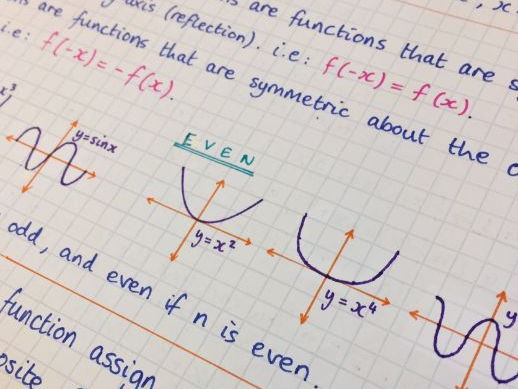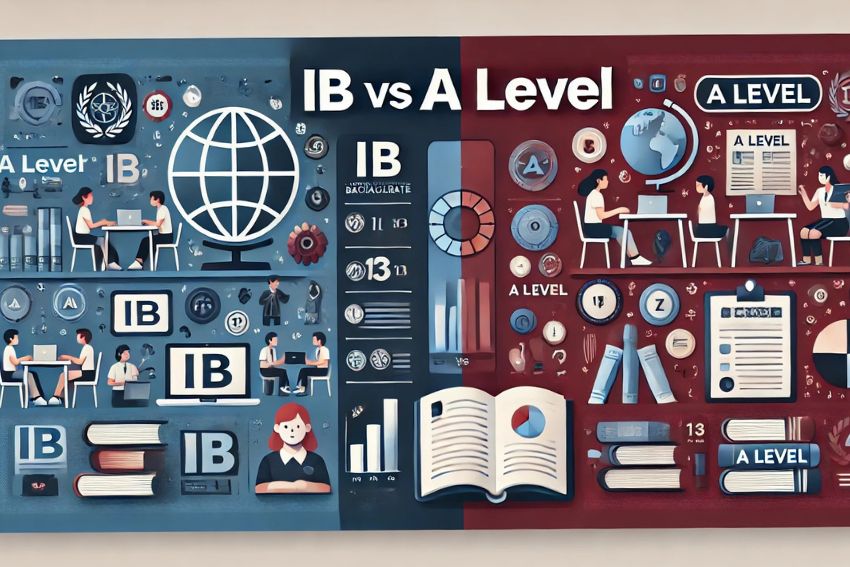IB Maths – Everything You Need to Know
Let’s face it: the world of IB Maths can seem a bit daunting. Maybe you’ve heard the whispers in the hallways about its challenges or perhaps you’re just curious about what it really entails. Either way, we’ve got you covered. This guide is here to break down the essentials, clear up the misconceptions, and give you a clear picture of what to expect. No fluff, just the facts and insights to help you navigate IB Maths with confidence. So, whether you’re a maths enthusiast or just trying to figure out your next steps, stick around. We’re about to dive into everything you need to know.
Understanding the Basics of IBDP Maths
What is IB Maths?
At its core, IB Maths is part of the International Baccalaureate Diploma Programme, aiming to equip students with the mathematical knowledge, understanding, and skills needed for both academic pursuits and real-world application. It’s not just about crunching numbers; it’s about understanding patterns, making connections, and developing a logical and analytical mindset.
Differentiating between HL (Higher Level) and SL (Standard Level)
When choosing your path in IB Maths, you’ll come across two main options: HL and SL.
HL (Higher Level): This is the more intensive of the two courses, delving deeper into mathematical concepts and requiring a stronger commitment in terms of study hours. It’s tailor-made for those who have a profound love for maths or are considering further studies or careers that demand a high level of mathematical expertise.
SL (Standard Level): A bit less intensive than HL, SL still offers a robust understanding of key mathematical concepts but without the depth and intensity of its counterpart. It’s ideal for students who want a solid grasp of maths but don’t necessarily see themselves pursuing it in tertiary education or career-wise.
When did the IB Maths syllabus change?
Change is the only constant, and the IB Maths syllabus is no exception. The most significant recent shift happened in 2019, replacing the old trio of Maths Studies, Standard, and Higher with the current system. This change aimed to modernise the curriculum, making it more relevant to today’s challenges and aligning it better with university and career demands. The first batch of students under this new system faced their exams in May 2021. It’s essential to stay updated, as these shifts can impact study strategies, resources available, and exam expectations.
The Courses of IB Maths
Navigating the IB Maths programme can initially feel like trying to decode a foreign language. But don’t fret! Once you understand the nuances of each course, it becomes much clearer. Below, we’ll break down the essentials of each.
Mathematics: Applications and Interpretations (Maths AI)
Who’s it for?
Maths AI is for those who see maths everywhere around them – in the stock market, the architectural curves of buildings, or even in the probability games they play with friends. It emphasises real-world applications, making it especially relevant for those interested in fields like business, finance, or certain scientific domains such as chemistry and biology.
Course Structure:
Both SL and HL students will venture into five main areas:
- Number and Algebra
- Functions
- Geometry and Trigonometry
- Probability and Statistics
- Calculus
However, HL students will dive deeper, tackling more complex problems and exploring sub-topics in greater detail.
Tech-Savviness:
A notable feature of Maths AI is its reliance on technology. Students are expected to master the use of graphic display calculators (GDC) and other tech tools that can simplify complex mathematical operations.
Mathematics: Analysis and Approaches (Maths AA)
Who’s it for?
Maths AA is tailored for abstract thinkers – those who love diving deep into mathematical theories and concepts. If you’re someone who enjoys the challenge of dissecting complex problems and is fascinated by the theoretical side of maths, this course might be your cup of tea. It’s particularly suited for students leaning towards pure mathematics, engineering, or physics.
Course Structure:
Like Maths AI, Maths AA also encompasses the same five areas. However, the weightage and depth given to each topic differ. For instance, while Maths AI HL may focus more on statistics, Maths AA HL would allocate more time to calculus.
Assessment:
One distinct feature of the Maths AA course is the non-calculator paper in the final exam. This tests students on their raw mathematical skills, without any tech aids.
Both courses, though different in their approach, aim to instil a profound understanding of mathematics in students. It’s not about which course is ‘better’ but rather which aligns more closely with your interests, strengths, and future aspirations. Choose wisely, and remember, the journey is as valuable as the destination!
Preparing for Success in IB Maths

IB Maths can seem daunting, but with the right approach and tools, you can navigate it with confidence. Here’s a guide to help you prepare effectively:
1. Set Achievable Goals
Be realistic about what you aim to achieve in IB Maths. Maybe it’s mastering a tricky topic or aiming for a top score in a mock exam. Regularly revisit these goals to stay on track.
2. Organise Your Study Time
Draft a timetable. Break down the syllabus into chunks and assign specific days or weeks to each topic. This ensures you cover everything without last-minute cramming.
3. Dive into Resources
- IB Past Papers: These are invaluable. Regularly solve past papers to familiarise yourself with the exam pattern.
- Revision Websites: Websites like Revision Village offer targeted IB Maths resources, from video lessons to practice questions.
- Textbooks: Books such as the “Mathematics for the IB Diploma” series provide in-depth coverage of topics and practice questions.
4. Join Study Groups
Studying with classmates can be beneficial. You can exchange notes, clarify doubts, and discuss complex problems to gain a deeper understanding.
5. Calculator Mastery
For those tackling Maths AI, the GDC isn’t just a tool but a lifeline. Understand its functionalities inside out. Regularly update its software and familiarise yourself with shortcuts.
6. Understand Real-world Applications
Try to relate mathematical concepts to real-world scenarios. For instance, use calculus to determine speed variations or employ statistics to analyse trends in real data.
7. Perfect Your IA
Your IA can significantly boost your final score. Choose a topic that genuinely interests you. Make sure your exploration is thorough, and your mathematical methods are sound. Websites like IB Maths Resources offer topic ideas and guidance.
8. Take Care of Yourself
Burnout is real. Make sure you’re eating well, sleeping sufficiently, and taking breaks. A walk or a short relaxation session can boost productivity.
9. Seek Help When Needed
If a topic is consistently challenging, consider seeking extra help. This could be in the form of tutoring, online forums, or additional classes.
By integrating these specific strategies into your preparation, you’re setting yourself up for success in IB Maths. Remember, the journey is as valuable as the destination. Enjoy the learning process!
Making the Right Choice: Which Course is for You?
Choosing the right IB Maths course is pivotal. It can shape your university choices, career aspirations, and, more immediately, your day-to-day experience during the diploma programme. Here’s a guide to help you weigh your options:
1. Understand Your Strengths and Interests
Do you enjoy more abstract mathematical concepts, or do you lean towards real-world applications? If the former, Maths Analysis and Approaches (AA) might be more suited to you. If the latter, consider Maths Applications and Interpretations (AI).
2. Consider Your Future Academic and Career Plans
Certain university courses or careers might prefer one type of IB Maths over the other. For instance, careers in pure Mathematics, Engineering, or Physics often align more with the AA course.
3. Seek Guidance
Talk to your school’s IB coordinator or maths teachers. They can provide insights based on your performance and interests. Additionally, older students who’ve been through the decision-making process can offer valuable perspectives.
4. Factor in Workload and Assessment
Each course has its own set of challenges. Understand the assessment criteria, internal assignments, and exam structures for both AA and AI before making a choice.
5. Review the Syllabus
Dive deep into the syllabus of each course. Familiarise yourself with the topics covered, the depth of study required, and the kind of mathematical problems you’ll be solving.
Is IB Maths Harder Than A-Level Maths?
This is a common query, especially in the UK. A-Level Maths is renowned for its depth and rigour. However, the challenge of IB Maths, particularly at Higher Level (HL), is comparable. While A-Level Maths focuses intensively on mathematical concepts, IB Maths combines this with an international perspective and a research-based approach (the IA). It’s not about one being “harder” than the other; they offer different challenges. The key is understanding which aligns better with your learning style and future goals.
6. Reflect and Decide
Once you’ve gathered all the information, take a moment to reflect. Consider how each course aligns with your strengths, interests, and future aspirations. It’s a decision that will shape your IB experience, so choose wisely.
How to Be Better in Maths? – Beyond the Syllabus
Diving into IB Maths is not just about ticking boxes and scoring grades. It’s also about nurturing a genuine appreciation for the world of mathematics and exploring its vast landscape. Here’s how you can go beyond the curriculum and immerse yourself in the beauty of maths:
1. Maths Competitions
Participate in maths competitions, both national and international. The UK hosts a variety of challenges like the UK Mathematics Trust (UKMT) competitions. These contests can sharpen your problem-solving skills and introduce you to intriguing mathematical concepts.
2. Online Courses and Workshops
Platforms like Coursera, edX, and Khan Academy offer courses that delve deeper into specific mathematical topics. If you find a particular area of the syllabus fascinating, why not explore it further online?
3. Books and Literature
There’s a treasure trove of maths literature out there, from biographies of famous mathematicians to books that explore the philosophy and history of maths. Some recommended reads include “Fermat’s Last Theorem” by Simon Singh and “The Man Who Knew Infinity” by Robert Kanigel.
4. Math Clubs and Societies
Join or start a maths club at your school. It’s a great space to discuss intriguing problems, share resources, and collaborate on projects. Moreover, being a part of a community with similar interests can be incredibly motivating.
5. Real-world Applications
Look for real-world scenarios where mathematical principles apply. For instance, the Fibonacci sequence in nature, or the application of calculus in engineering projects. Exploring these will give you a deeper appreciation of the subject’s relevance.
6. Research Opportunities
If you’re passionate about maths, consider exploring research opportunities. Many universities welcome students eager to take part in real projects. You might even begin your own, especially if you’re working on an IB extended essay with a maths focus. Getting guidance from a professional or teacher can make your research both meaningful and rewarding.
7. Mathematics Journals and Publications
Subscribe to journals or magazines dedicated to mathematics. Publications like ‘Mathematics Today’ or ‘The Mathematical Gazette‘ offer insights into current mathematical research, innovations, and discoveries.
8. Attend Lectures and Seminars
Keep an eye out for lectures, seminars, or workshops at local universities or institutions. These sessions can provide deeper insights into specific topics and introduce you to the broader academic community.
In Conclusion: Your Journey with IB Maths
IB Maths is an expansive subject with diverse avenues to explore. From understanding core concepts to delving into the intricacies of specific topics, it’s a field that offers a wealth of learning. For those moments when the going gets tough or when you need a deeper insight, Edumentors’ IB tutors are here to help. With tailored support and expert guidance, mastering IB Maths becomes a more attainable goal. Remember, every question you tackle and every problem you solve brings you one step closer to academic excellence. Best of luck, and should you need assistance, Edumentors is just a call away.











